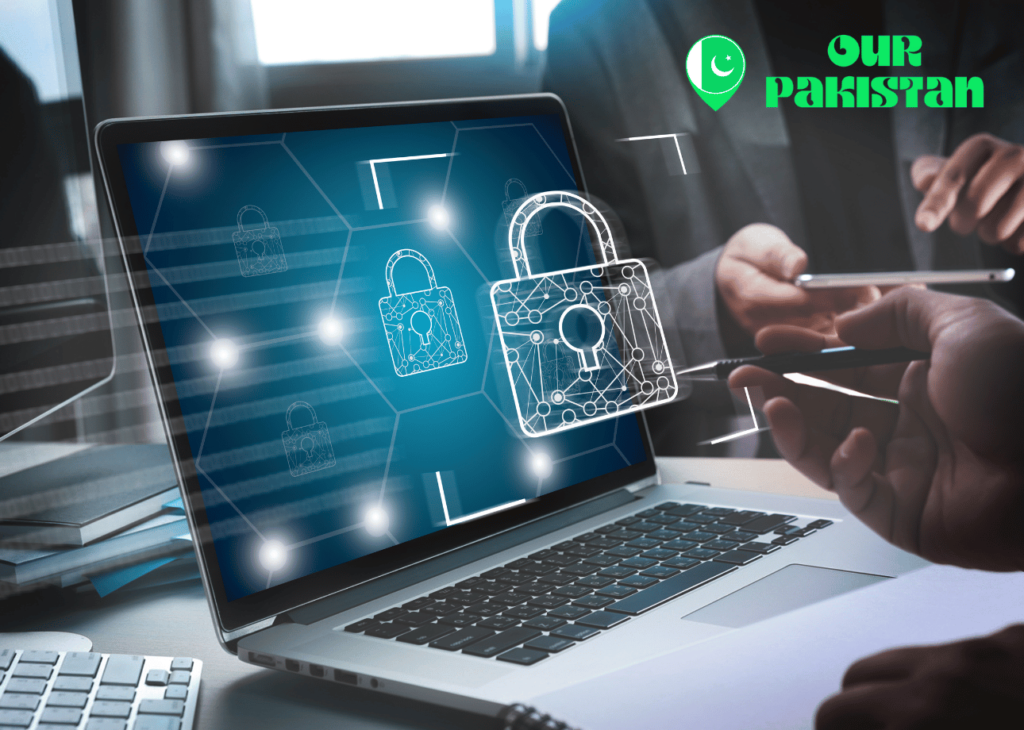Data privacy refers to the protection of personal information and the right to control how it is collected, used, and shared. Conversely, cybersecurity focuses on safeguarding computer systems and networks from unauthorized access or attacks.
With the rapid advancement of technology and the increasing reliance on digital platforms, ensuring data privacy and cybersecurity has become more crucial than ever. Individuals and organizations are vulnerable to cyber threats, including unauthorized data access, theft, and cyberattacks.
Pakistan, like many other countries, is quickly embracing digital transformation. The technological landscape includes widespread internet and mobile penetration, e-commerce platforms, and a growing digital economy. However, this progress also brings various data privacy and cybersecurity challenges.

The State of Data Privacy in Pakistan
- Data Protection Laws and Regulations in Pakistan Pakistan have enacted several laws to protect data privacy and regulate the collection, storage, and use of personal information. The primary legislation in this regard is the Personal Data Protection Act, which sets out data protection and consent requirements guidelines.
- Government Initiatives and Compliance Requirements The government of Pakistan has taken proactive steps to establish compliance requirements for organizations dealing with personal data. This includes mandatory registration and data protection impact assessments to ensure adherence to data protection standards.
- Notable Cases and Impact on Individuals and Organizations Pakistan has witnessed several high-profile data breaches and cyber incidents that have had a significant impact on individuals and organizations. These incidents have highlighted the vulnerability of personal data and the need for robust cybersecurity measures.
- Challenges in Reporting and Handling Cyber Attacks There are various challenges in reporting and handling cyber attacks in Pakistan. Lack of awareness, inadequate incident response mechanisms, and limited technical expertise hinder the effective mitigation of cyber threats. It is essential to improve these aspects to strengthen the country’s cybersecurity posture.
Cybersecurity Challenges Faced by Pakistan
- Types of Cyber Threats and Attacks Pakistan faces a diverse range of cyber threats, including phishing attacks, malware infections, ransomware, and advanced persistent threats. These threats target various sectors, such as government organizations, financial institutions, and critical infrastructure.
- Vulnerable Sectors and Industries Certain sectors and industries in Pakistan are more susceptible to cyber attacks due to their criticality and interconnectedness. These include the banking sector, healthcare industry, energy sector, and government agencies. Cybersecurity measures must be prioritized in these sectors to mitigate risks effectively.
- Educational Efforts and Awareness Programs To address the lack of awareness and digital literacy, the government and private organizations have initiated various educational efforts and awareness programs. These programs aim to educate individuals about cybersecurity best practices, safe online behavior, and the importance of data privacy.
- Importance of Public and Private Collaboration Collaboration between the public and private sectors is crucial in tackling the cybersecurity challenges faced by Pakistan. Sharing threat intelligence, conducting joint training programs, and establishing cybersecurity partnerships can significantly enhance the country’s cybersecurity resilience.
Data Privacy Concerns in the Digital Ecosystem
- Privacy Policies and User Consent The data collection practices of social media platforms raise concerns over user privacy. Privacy policies should be transparent, clearly outlining how user data is collected, stored, and shared. Additionally, obtaining informed consent from users regarding data usage is essential.
- Implications for User Privacy, The extensive collection and analysis of user data have significant privacy implications. It can lead to profiling, targeted advertising, and potential misuse of personal information. Effective data privacy regulations are necessary to safeguard user privacy in the digital ecosystem.
- Government Surveillance Programs Pakistan has implemented various surveillance programs to combat terrorism and maintain national security. However, these programs raise concerns over citizen privacy and the potential misuse of surveillance powers. Striking a balance between security and privacy is crucial.
- Impact on Citizen Privacy and Civil Liberties The excessive use of surveillance and data sharing can infringe upon citizens’ privacy rights and civil liberties. Establishing robust safeguards, oversight mechanisms, and legal frameworks to protect citizens’ privacy while maintaining national security is imperative.
Cybersecurity Measures and Best Practices
- Government-led Initiatives and Cybersecurity Agencies The government of Pakistan has established cybersecurity agencies, such as the National Computer Emergency Response Team (CERT), to coordinate and respond to cyber threats. These agencies work towards enhancing cybersecurity infrastructure and providing resources for incident response.
- Private Sector Involvement in Enhancing Security The private sector plays a crucial role in strengthening cybersecurity in Pakistan. Organizations should invest in robust security technologies, conduct regular security audits, and promote a cybersecurity culture within their workforce. Collaboration with the government and sharing best practices can further strengthen security measures.
- Encouraging End-to-End Encryption Adoption End-to-end encryption is vital to protect sensitive data from unauthorized access. Encouraging the adoption of encryption technologies by individuals and organizations can significantly enhance the security of digital communication.
- Securing Online Transactions and Financial Data Pakistan’s financial sector faces cybersecurity risks due to the increasing adoption of online banking and digital payment solutions. Strong encryption measures, multi-factor authentication, and regular security audits can help secure online transactions and protect financial data.

Data Privacy Rights and Empowerment
- Accessing Personal Information Held by Organizations Individuals in Pakistan have the right to access their personal information held by organizations. Establishing a streamlined process for data subject access requests can empower individuals to exercise their data privacy rights effectively.
- Right to Data Erasure and Correction In addition to accessing personal information, individuals also have the right to request the erasure or correction of inaccurate or outdated data. Strengthening these rights through clear regulations and streamlined processes is essential.
- Global Standards and Aligning with International Frameworks Pakistan should strive to align its data privacy laws and enforcement mechanisms with global standards and international frameworks. This includes adopting best practices from countries with robust data protection regulations.
- Strengthening Regulatory Authorities and Penalties for Non-Compliance To ensure compliance with data privacy laws, regulatory authorities must be reinforced with adequate resources and powers. Implementing appropriate penalties for non-compliance can serve as a deterrent and promote a culture of responsible data handling.
Future Outlook for Data Privacy and Cybersecurity in Pakistan
As technology continues to advance, new threats will emerge. Pakistan needs to anticipate and proactively address these threats through continuous research, technological innovation, and collaboration with global cybersecurity communities.
The government and the private sector are crucial in mitigating data privacy and cybersecurity risks. Continued investment in cybersecurity infrastructure, fostering public-private partnerships, and sharing threat intelligence is vital to ensuring a secure digital future.
Education and digital literacy programs should be expanded to empower citizens with the knowledge and skills required to protect their data. By fostering a cybersecurity-aware culture, individuals can play an active role in safeguarding their privacy and contributing to a more secure digital ecosystem.
Conclusion
Data privacy and cybersecurity pose significant challenges in Pakistan, ranging from legal frameworks to awareness and infrastructure. Addressing these challenges requires comprehensive efforts by all stakeholders involved.
Safeguarding data privacy and enhancing cybersecurity is crucial for Pakistan’s digital future. By prioritizing these concerns, individuals, organizations, and the government can collectively create a secure and trustworthy digital environment.
Collaboration between stakeholders, including government bodies, private organizations, and individuals, is essential to effectively address data privacy and cybersecurity concerns. By working together, Pakistan can overcome these challenges and build a resilient digital ecosystem.